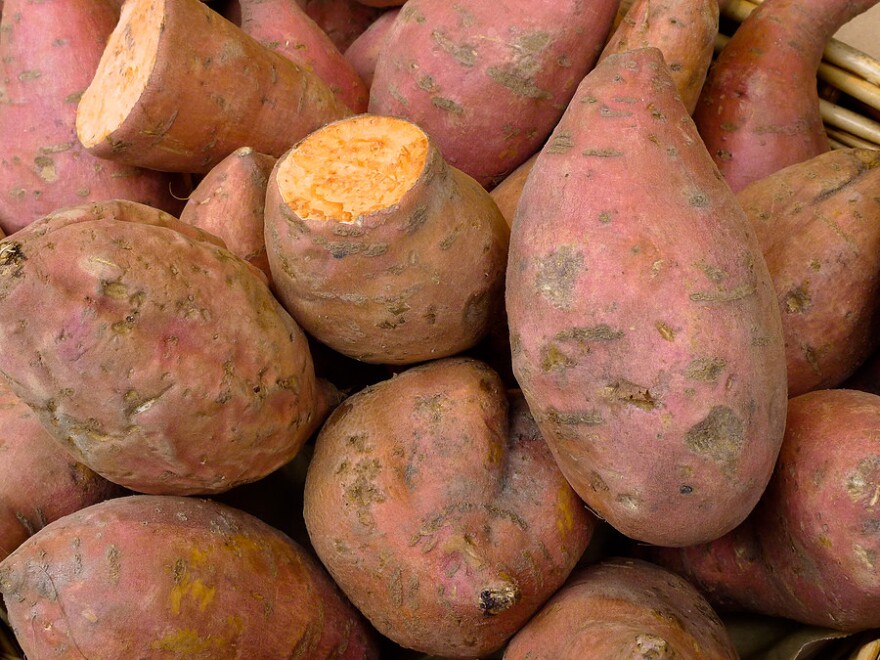I’ve lived in Catawba County for 37 years, and I’m still learning things about local culture.
Take sweet potatoes.
Please.
They’re not my favorite food, a sure sign I’m not a Catawba County native. If I were, I would already know that sweet potatoes are a snack food.
I learned this nugget of wisdom at the Catawban Book Club that has been convening each week at the Museum of History. The group is studying Gary Freeze’s The Catawbans Volume I. The fun part of being in a book discussion is what you learn from fellow participants. It’s not so much what’s in the book, but what other readers contribute. Of the nine in the discussion, several had their own memories of life in the county.
Recently we discussed local foodways and before I knew it, we were talking sweet potatoes. Some in the group said they still eat sweet potatoes on a whim. We’re not talking the sugary casserole baked for the holidays, but honest-to-goodness vegetables that are nourishing and satisfying.
Once upon a time, orange-colored tubers were a huge deal. In the early 1900s, local farmers produced more sweet potatoes than most any county in North Carolina. A large sweet potato house existed over near Catawba, and locals rented space to store their sweet potatoes for later consumption. That is, if a family didn’t have a root cellar.
I have never been privy to a kitchen that keeps cooked sweet potatoes on hand for snacking, but I don’t doubt that’s so. Eating a sweet potato—raw or cooked—on the fly is something that never occurred to me until I sat in on this book club and heard the locals talk.
Our discussion leader, Richard Eller, Historian in Residence at the Catawba County Historical Association, pointed out the agricultural roots of our county in more ways than sweet potatoes. Catawba was once a cotton growing place. Commercial cotton gins operated in Newton, Startown and Terrell and elsewhere. In fact, cotton farming explains the sweet potatoes. What one crop robbed from the soil (cotton), the other replenished (sweet potatoes).
I’m always fascinated with foodways—recipes people create with readily available ingredients. Every culture has its version of portable foods, which makes me wonder how I’ve missed all the hints about living in what was once a sweet potato capital. It makes me wonder what else I’ve missed. It helps to commune with natives of a place, to have them explain how things were and how they are, why folks see the world in a particular way.
The curiosity seeker in me likes to connect some dots that have faded from public view and to grasp them and enrich my life before they slip away, such as sweet potato fields and sweet potato houses and those curious orange-y snacks on the kitchen table.
Tammy Wilson is a writer who lives near Newton. You may contact her at tamra@tamrawilson.com






